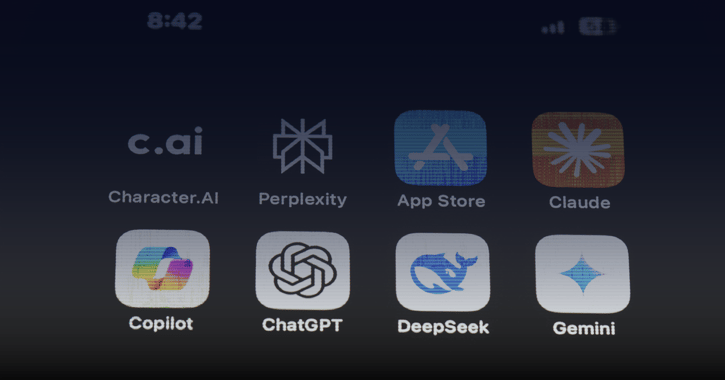The Privacy Paradox of Consumer Tech Readiness [BONUS: Trends to Watch]

The Privacy Paradox in Consumer Tech Adoption
As technology becomes more integrated into our daily lives, privacy concerns have emerged as a critical factor shaping consumer tech readiness. Our research has identified what we call the "privacy paradox"—consumers want highly personalized experiences but remain deeply concerned about how their data is being used. This tension creates significant challenges for brands. The promises of AI and personalization are tantalizing, but these capabilities simply cannot function without access to consumer data. The fundamental challenge lies in this exchange—the very information needed to create the experiences consumers desire is often the information they're hesitant to share.
We've observed different approaches to navigating this challenge. Apple, for instance, has taken a privacy-first stance, limiting data collection and emphasizing user control—a strategy that resonates with privacy-conscious consumers but potentially limits AI capabilities. Other companies have opted for more data-utilizing strategies that enable more advanced personalization but may alienate privacy-focused segments.
Our research shows that attitudes toward data privacy vary significantly across TRI segments. Explorers and Pioneers are typically more willing to share data in exchange for enhanced experiences, while Skeptics and Avoiders express much higher concerns about data collection and use. This variation highlights why a one-size-fits-all approach to privacy is ineffective. Technology brands need strategies that acknowledge and address the spectrum of privacy concerns across different consumer segments.
Actionable Strategies for Technology Brands
1. Integrate TRI into product development cycles
By understanding the distribution of their target market across TRI segments, brands can design products that accommodate various levels of tech readiness. This might mean creating interfaces with different complexity options, developing onboarding experiences tailored to tech comfort levels, or prioritizing features that appeal across segments.
2. Develop segmented messaging
Any communications strategy should reflect the different concerns and motivations of each TRI segment. For Explorers, messaging might highlight cutting-edge capabilities and innovation. For Skeptics, focusing on practical benefits, reliability, and ease of use will be more effective. Avoiders may respond best to reassurances about simplicity and human support options.
3. Create phased adoption pathways
Instead of expecting immediate adoption of all features, design pathways that gradually introduce capabilities as users become more comfortable. This approach respects different adoption timelines and helps move more cautious consumers along the tech readiness spectrum.
4. Apply specific strategies for AI products
For AI-powered offerings, consider tiered approaches to personalization that allow consumers to control how much data they share. Clearly communicating the relationship between data sharing and enhanced experiences helps consumers make informed choices based on their comfort level.
5. Incorporate TRI into research methodology
The TRI can be embedded into various research initiatives, from concept testing to customer journey studies. This additional layer of analysis provides crucial context for interpreting results and developing more targeted strategies. You can also incorporate the TRI questions into research you conduct on your own for a one-time licensing fee. By implementing these strategies, brands can create products and messages that resonate with consumers across the tech readiness spectrum, not just early adopters.
The Competitive Advantage of Understanding Consumer Tech Readiness
If understanding the nuances of consumer tech readiness provides a significant competitive advantage, ignoring these findings can mean losing share of wallet and ultimately, declining sales.
Illuminas' Technology Readiness Index offers a proven methodology for gaining insights for developing and maintaining winning strategies. By incorporating the TRI into your research approach, you can better understand your target consumers and how they interact with technology. Brands that leverage these insights can develop products that appeal to broader segments, create more effective marketing messages, and build adoption strategies that bring more consumers along the journey. This understanding becomes increasingly critical as AI and other advanced technologies become more prevalent in consumer products and services. The brands that will succeed aren't necessarily those with the most advanced technology, but those who best understand how to design and position that technology for real consumers across the tech readiness spectrum.

Discover how incorporating the Technology Readiness Index into your research can transform your approach to technology product development and marketing. Contact Illuminas to learn more about applying these insights to your specific challenges. Check out this case study to see how one of our clients used this foundational research to better understand the Electric Vehicle market.
BONUS SECTION: Key Trends to Watch in Consumer Tech Readiness
![]() Consumer concerns about AI's impact on jobs have increased, with those believing their job is "not likely to be affected" dropping from 62% to 45% in recent years.
Consumer concerns about AI's impact on jobs have increased, with those believing their job is "not likely to be affected" dropping from 62% to 45% in recent years.
![]() Gen Z shows more skepticism toward technology than Millennials or Gen X, defying traditional assumptions about younger consumers.
Gen Z shows more skepticism toward technology than Millennials or Gen X, defying traditional assumptions about younger consumers.
![]() Attitudes toward AI remain divided, with approximately 55% expressing fear versus 45% expressing hope about AI's future impact.
Attitudes toward AI remain divided, with approximately 55% expressing fear versus 45% expressing hope about AI's future impact.



